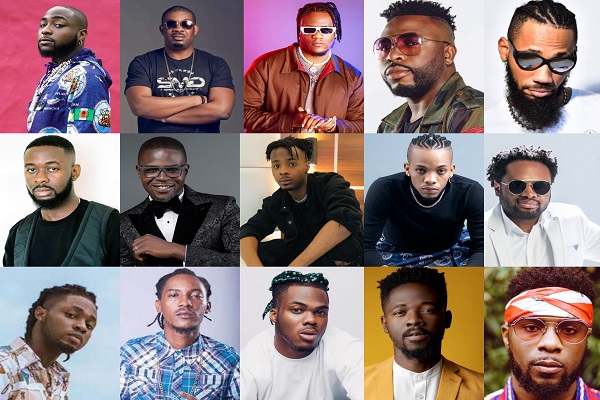From the Booth to the Spotlight: Nigerian Producers Leading Afrobeats’ Global Reign
There was a time when producers in the Nigerian music industry were the unsung architects the invisible hands shaping rhythm and melody while artists took the glory. But in today’s Afrobeats landscape, the lines have blurred. The men who once sat quietly behind the console now command stages, streaming charts, and global acclaim. Figures like Pheelz, Young Jonn, Tekno, Maleek Berry, and 1da Banton have rewritten the playbook transforming from background geniuses to full-fledged stars. Their evolution isn’t just personal; it reflects the broader metamorphosis of Afrobeats itself from a local sound movement to a global cultural force built on self-definition and creative control.
The shift began subtly. For years, Nigerian producers were the backbone of the sound revolution, crafting hits that traveled beyond borders. But the system wasn’t built to reward them equally. Producers often received one-time payments, minimal recognition, and little of the spotlight. As streaming reshaped music economics and social media erased the boundary between studio and stage, a new awareness emerged: if you can build the sound, you can own the voice. Producers stopped waiting for validation from artists and instead began to sing their own stories.
Pheelz is perhaps the most prominent example of this new generation. Known for shaping Olamide’s YBNL sound with hits like “Durosoke” and “Shakiti Bobo,” Pheelz flipped the script when he dropped “Finesse” featuring BNXN in 2022. The record wasn’t just a hit it became a cultural phrase, a digital anthem that signaled a new era. Suddenly, the producer was the frontman, his voice on radio rotations, his name on billboards. Since then, Pheelz has balanced both worlds with a rare grace producing, singing, and performing with the confidence of someone who understands the game from every angle.
Young Jonn’s evolution followed a similar rhythm but with a different tone. Known as “The Wicked Producer,” he was behind some of Olamide’s and Lil Kesh’s biggest bangers. When he stepped out with his own sound, blending smooth melodies with upbeat, street-leaning hooks, fans realized his artistry extended beyond the mixing desk. “Dada” and “Xtra Cool” didn’t just prove he could make hits they showed he understood emotion, rhythm, and audience psychology as deeply as any pop star. Young Jonn’s story underscores a truth that many in the industry now accept producers were always artists; they just needed the mic.
Tekno’s case is a bridge between generations. Long before the current wave, Tekno blurred the producer-artist line naturally, crafting his beats, writing his hooks, and performing with equal brilliance. Songs like “Duro,” “Pana,” and “Yawa” weren’t just hits they were masterclasses in control. Tekno’s ability to shape his entire sonic universe, from rhythm to lyric, gave him a kind of independence rare in the mid-2010s Afrobeats landscape. He became a blueprint for the younger producer-artists who followed proof that you didn’t have to pick one lane when you could own the highway.
Maleek Berry’s journey brought a different flavor. His signature warm melodies, intimate lyricism, and sleek production helped define Afropop’s global-friendly sound. When he released “Kontrol” and “Been Calling,” the industry witnessed the power of a producer who understood structure and soul in equal measure. Maleek’s music had polish, but more importantly, it had perspective. His transition also coincided with the streaming boom, and his success abroad especially in the U.K. and U.S. hinted at how Afrobeats could evolve beyond party music into something emotionally complex yet universally accessible.
And perhaps one of the most intriguing figures in this new class is 1da Banton. Known initially for his behind-the-scenes work, he’s now built a name as a full-fledged artist with his own identity. His track “No Wahala” became a cross-continental hit, merging Caribbean warmth with Nigerian rhythm, and it didn’t sound like anyone else. 1da Banton’s artistry is proof that producers aren’t just chasing the spotlight they’re expanding Afrobeats’ sonic vocabulary, pushing its limits beyond the predictable.
Collectively, these producer-artists have changed the texture of Afrobeats. They’ve redefined what it means to be an artist not just a voice or a performer but a creator in full command of the sound. Their rise has also reshaped collaboration dynamics. Artists now work with producers who understand melody as deeply as beat structure, and that synergy has elevated the genre’s quality globally. The Afrobeats sound is now as much about technical innovation as it is about charisma, and producers-turned-artists are leading that fusion.
But this shift also carries cultural weight. For years, the Nigerian music industry mirrored global hierarchies where producers remained faceless. The new era flips that narrative it’s about visibility, autonomy, and ownership. In an age where creative independence equals power, producers are refusing to be silent partners in their own success stories. Their rise signals a broader awakening: Afrobeats is no longer built on hierarchy but on hybrid talent.
Internationally, this evolution has also made the genre more sustainable. Western audiences now see that Afrobeats isn’t just about a few frontmen but a full ecosystem of multifaceted creatives. The producer-artist hybrid is the industry’s best export versatile, self-sufficient, and able to adapt across sounds, from Amapiano to R&B-infused Afropop. The same people who once shaped hits in the shadows now headline global festivals, collaborate with international stars, and represent the depth of African creativity.
The reign of producer-artists is, in many ways, Afrobeats’ next frontier. They embody the genre’s ethos: innovation, resilience, and fluidity. They don’t just make hits they build worlds. And as Afrobeats continues its global expansion, the blueprint they’ve set will define the next generation. The studio is no longer a backstage; it’s the stage itself.


Leave a Reply